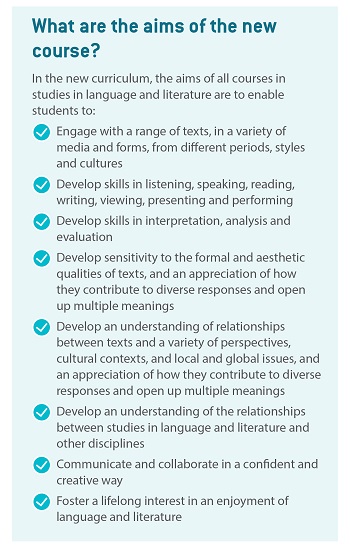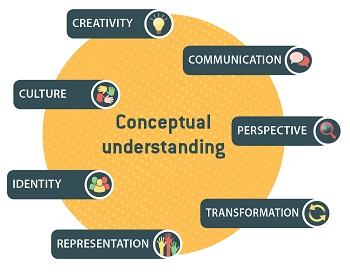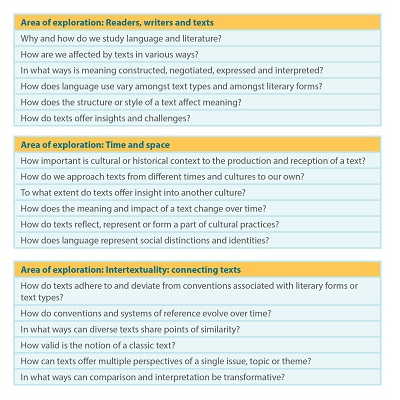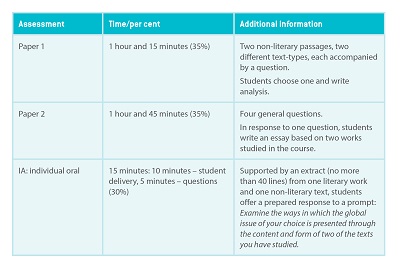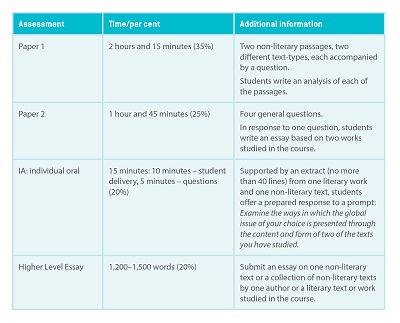Exploring the changes to the DP English A course structure
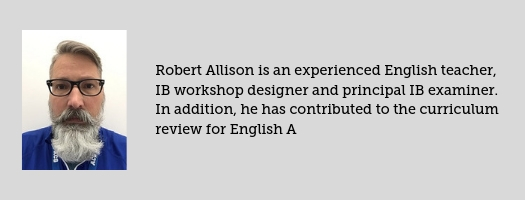
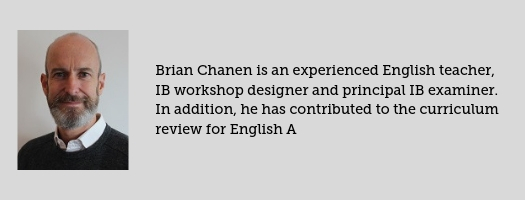
The Language A: language and literature course will be changing significantly for first assessment in 2021. This guide will help you to understand the changes, and give you a taste of the latest Oxford resources that have been developed in cooperation with the IB to fully support you in delivering the new course.
Why is the course changing?
While at first glance, the changes may seem daunting, they offer increased flexibility to schools and should make for an exciting new course. Importantly, though, the changes are more than aesthetic.
The new course is more firmly grounded in the pedagogical principles of the IB and reflects the variety of current work in the discipline. And as you will see in this guide, while a new course brings uncertainty, so many of the changes also bring practical benefits.
What are the changes?
Concepts
Perhaps the most fundamental change to the course is that it is founded on broad concepts that come from the study of language and literature. This helps to clarify that IB educators are not ‘teaching to a test’ or even ‘teaching’ a particular work – we are engaging with important concepts in the discipline and developing skills to
be able to approach, study and enjoy language and literature.
The concepts aren’t necessarily explicitly taught, but form a foundation for the course or a set of motifs that run throughout the study. The concepts can be used to help choose works and texts, to plan lessons or to form a touchstone for learner portfolio response.
Approaches to teaching and learning
You will notice in the new guide that there is a stronger focus on the Approaches to teaching and learning, underpinned by the IB’s pedagogical principles. Importantly, especially in DP studies in language and literature, these approaches do not form a checklist, but are what we do as we work through language and literature:
- Thinking skills – we use and develop these whenever we react to texts, whenever we interpret, critique or respond.
- Communication skills – these are also inherently part of our course as we discuss, present, write, create and transform. By communicating about language and literature we also build our ability to participate and grow in a rich language community.
- Social skills – reading may seem like a solitary pleasure but reading and interpreting is necessarily collaborative. In order to have any thoughts, feelings and conclusions about texts, we collaborate with authors through time, with other communities, and with people in our classroom.
- Self-management skills – perhaps it is enough to say ‘paper deadline’ or ‘400-page novel’ here.
- Research skills – this, too, is an inherent part of delving into texts, works and the topics that interest us.
Three areas of exploration
While in the old course there were four parts, in the new course there are three ‘areas of exploration’. Importantly, unlike in the old course, none of the assessments are tied to particular areas of exploration. This means that the focus of each area is more conceptually based and allows for a wider variety of readings and activities.
While the areas of exploration progress in a logical way – from initial concerns of production, reception and response to a widening look at various contexts, and finally to ‘further exploration’ of works, texts and
the connections that students make after a period of study – they can be approached in any order, can be blended or overlapped very usefully, or can be reconstructed using the thread of concepts or guiding conceptual questions.
While three areas may not seem to fit easily into the typical school two-year calendar, the organization allows teachers to make decisions about numbers of texts/works to use, how to organize time, and how to best balance
assessment needs or the regular interruptions of school life. These areas are also identical across literature, and language and literature, so should make movement of students more practical.
Guiding conceptual questions
The following guiding conceptual questions are the key to the areas of exploration. These questions connect the areas to the broad concepts and are the kinds of questions that have no right or easy answer. Students engage with these questions as they engage with their reading and viewing.
The learner portfolio
The learner portfolio is an essential and mandatory part of the course. It is not assessed or moderated by IB but it has obvious benefits as a way of tying the course together. The learner portfolio is a place to explore, take notes, collect, curate, compare and build. The learner portfolio can be a place to assign creative work and collect drafts. Think of the learner portfolio as an art process journal or a director’s notebook. Think of it as an interactive journal.
The best learner portfolios will be filled with short responses, journal reflections, pointed assignments, images and texts. It is also, importantly, a place where students can trace their reactions to global issues and concepts they encounter in their texts/works as they prepare for the individual oral, and where they can practise their skills of analysis and essay response.
Global issues
All texts speak to the world in some way. ‘Global issues’ are a way of generating and maintaining student interest in the ways in which texts speak to issues that go beyond texts and borders. Students are asked to consider the various global issues that are reflected, refracted or represented in the works they study. They can look at how texts ask us to consider important issues.
Over the course of the two-year study, students begin to narrow down to a particular global issue that is important to them or that they have noticed most strikingly in two of the works/texts they have studied (one work and one non-literary text). This forms the basis of their individual oral.
The global issues come from the following fields of inquiry:
- Culture, identity and community
- Belief, values and education
- Politics, power and justice
- Art, creativity and the imagination
- Science, technology and the natural world
The Prescribed reading list
The Prescribed reading list marks a big change for the studies in language and literature courses. Now teachers and students have more freedom in constructing courses in the new curriculum. Free choice, for example, can be studied anywhere in the course and can be used on any of the assessments. The new Prescribed reading list, then, is broader in offering a variety of interesting suggestions for authors who often produce work at a level appropriate for upper secondary school.
And the list is very diverse. First, for works in translation, teachers (or students with some guidance) can choose any work from any of the authors on the list, in any language other than English. As there is so much choice, six authors have been highlighted for each language to help teachers get started – but feel free to choose anything!
Second, the English list is far more diverse. To give just two of many examples: the old list contained 172 male authors and 69 female authors, while the new list (at last edit) contained 145 male authors and 146 female authors; the old list had no authors from Asia who were not from India, the new list has 15. Enjoy.
Assessment
The number of assessments has gone from six discrete tasks at Higher Level to four, and from five to three at Standard Level.
The assessments were reduced mainly because students were being assessed too many times for virtually the same skills. The remaining assessments are the most distinct and still offer multiple opportunities for students to show what they know or are able to do.
The fewer assessments also give more room to the teachers. This helps teachers from constantly feeling like they have to prepare for the tests and get through required assessment, and allows them to focus on the activities that they think best help students to learn and grow.
It is important to remember that these assessments are not the course itself nor the only assessment of learning. These are the assessments that allow IB to determine where the students are at the end of the course. Teachers, of course, assess throughout using similar and different methods, and teachers know that the way to engage with literature and grow isn’t through the simple repetition of formal assessments.
For more information on our English A offer, click here for language and literature and here for literature.
English A: language and literature
IB DP English A: language and literature
Developed in cooperation with the IB, this student-friendly, concept-based Course Book has been comprehensively updated to support all aspects of the new English A: Language and Literature syllabus, for first teaching in September 2019.
Search results
|
Product 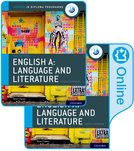
|
Oxford IB Diploma Programme: English A: Language and Literature Print and Enhanced Online Course Book PackDeveloped in cooperation with the IB for the latest syllabus Author Brian Chanen and Author Rob Allison 978-0-19-843458-0 Pack | 21/03/2019 Price: £64.99 +VAT |
|
Product 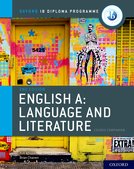
|
Oxford IB Diploma Programme: English A: Language and Literature Course CompanionDeveloped in cooperation with the IB for the latest syllabus Author Brian Chanen and Author Rob Allison 978-0-19-843452-8 Paperback | 14/03/2019 Price: £48.99 Also available as an ebook |
|
Product 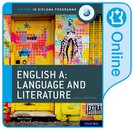
|
Oxford IB Diploma Programme: English A: Language and Literature Enhanced Online Course BookDeveloped in cooperation with the IB for the latest syllabus Author Brian Chanen and Author Rob Allison 978-0-19-843455-9 Digital Licence Key | 28/02/2019 Price: £48.99 +VAT |
|
Author 
|
Brian Chanen |
|
Author 
|
Rob Allison |
© 2024 Oxford University Press. All rights reserved.

